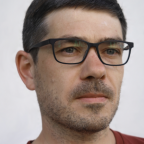Q-Chem Webinar 69: ADC for Electron Detachment and Attachment (Wormit Award)
June 19th, 2023
Q-Chem is excited to announce the Wormit Award Webinar (Webinar 69), to be presented on July 6 by Adrian Dempwolff!

Quantum-chemical methods based on Algebraic Diagrammatic Construction (ADC) theory have been around for more than 40 years. They are based on perturbation theory and have served as a basis for a number of further developments such as, e.g., the very successful core-valence separation (CVS) approximation for the description of processes involving core electrons, as well as complex absorbing potentials (CAP) for the description of unbound electronic states. ADC methods offer a set of distinctive features not combined in any other wavefunction-based method: size consistency, guaranteeing size-intensive results, Hermiticity, and compactness with respect to the configurational space.
To this day, various ADC schemes have been derived, enabling the theoretical treatment of electronic excitation (EE-ADC), electron detachment (IP-ADC) and attachment (EA-ADC), as well as double detachment (DIP-ADC) and double attachment (DEA-ADC).
This talk focuses on IP- and EA-ADC methods and their implementation in Q-Chem. Adrian will start with a brief recap of the derivation of ADC schemes via the intermediate state representation (ISR) approach. The second part of the talk will cover the computation of one-particle properties, including CAP-EA-ADC, an assessment of the accuracy and precision of different ADC schemes, as well as some showcase applications to medium-sized organic systems.
Adrian Dempwolff studied Chemistry at Heidelberg University and received his diploma degree in the group of Prof. Andreas Dreuw in 2016. After his Ph.D. studies in the same group he received his Ph.D. in Theoretical Chemistry from Heidelberg University in 2020. He has since been working as a post-doc in the group of Andreas Dreuw. His main research interest lies in the development and implementation of higher-order methods for the simulation of photochemical processes, with a special emphasis on metastable systems, as well as electron attachment and detachment.